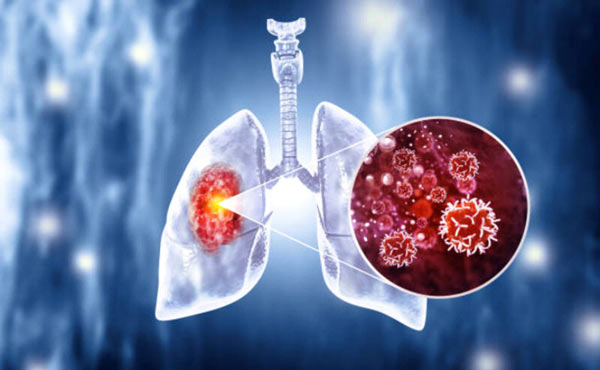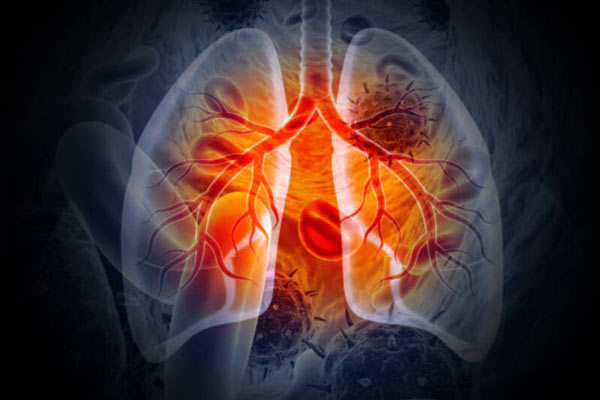
Are you or someone you know living with the daily reality of asthma? If so, then you’re probably all-too-familiar with the constricting feeling that asthma can bring—both emotionally and physically. But what really causes it? And more importantly, are there effective treatments available to alleviate symptoms and improve quality of life? In this comprehensive article, we’ll be exploring exactly this: looking closely at the possible triggers of asthma, examining various treatment approaches for better symptom management, and finally piecing together a holistic approach for improved long-term health. With our guidance in tow, you may just find yourself one step closer towards taking control of your (or their) wellbeing. So come along as we unveil hidden secrets about the origins and treatments of asthmatic conditions - here's your chance to unlock deeper understanding!
What is asthma?
Asthma is a chronic respiratory disease that affects the airways leading to your lungs. These airways become inflamed and constricted, making it difficult to breathe. This can lead to symptoms such as coughing, wheezing, chest tightness, and difficulty breathing. Asthma attacks can be triggered by various factors and can range from mild to severe.
Common symptoms of asthma
- Difficulty breathing.
- Shortness of breath.
- Tightness in the chest.
- Wheezing (a whistling sound when breathing).
- Coughing, especially at night or early morning.
These symptoms may worsen during an asthma attack and can be accompanied by anxiety, fatigue, and difficulty speaking. It is important to note that these symptoms vary from person to person, and some may experience them more frequently or severely than others.
Common Causes of Asthma:

1. Genetics
Research has shown that genetics play a significant role in the development of asthma. If one or both parents have asthma, allergies, or other respiratory conditions, their children are more likely to develop asthma as well. However, having a family history of asthma does not necessarily mean that an individual will also develop it.
2. Allergens
Allergens are substances that cause an allergic reaction in the body. Common allergens that can trigger asthma attacks include:
- Pollen from trees, grasses, and weeds.
- Dust mites.
- Pet dander.
- Mold and mildew.
Exposure to these allergens can lead to inflammation of the airways, making it difficult to breathe for people with asthma.
3. Environmental Factors
Exposure to certain environmental factors can also contribute to the development of asthma or trigger symptoms in individuals with existing asthma. These factors include:
- Air pollution.
- Chemical fumes and irritants.
- Smoke from cigarettes or fireplaces.
- Cold air.
- Changes in weather/temperature.
4. Respiratory Infections
Respiratory infections, such as the common cold or flu, can also trigger asthma attacks. This is because these infections cause inflammation and irritation in the airways.
5. Occupational Triggers
Certain jobs or industries may expose individuals to substances that can trigger their asthma symptoms. These triggers may include chemicals, dust, fumes, and other irritants.
How to create an effective action plan for managing asthma symptoms?
If you have been diagnosed with asthma, it is important to work closely with your healthcare provider to create an action plan that works for you. This plan should include steps for managing symptoms and preventing asthma attacks. It may include the following components:
- Monitoring your symptoms and peak flow measurements.
- Identifying and avoiding triggers.
- Taking prescribed medications as directed.
- Knowing what to do in case of an asthma attack.
- Regular check-ups with your healthcare provider.
It is also important to make lifestyle changes, such as quitting smoking, exercising regularly, and maintaining a healthy diet, to improve overall respiratory health.
The role of diet and nutrition in managing a condition:
While diet and nutrition may not have a direct impact on the development of asthma, they can play a significant role in managing symptoms. A balanced and healthy diet can help strengthen the immune system and reduce inflammation in the body, which can improve respiratory health. Some foods that may be beneficial for individuals with asthma include:
- Fruits and vegetables rich in antioxidants (e.g., berries, leafy greens).
- Foods high in omega-3 fatty acids (e.g., salmon, chia seeds).
- Foods rich in vitamin D (e.g., fortified milk and cereals).
On the other hand, there are also foods that may trigger asthma symptoms or worsen existing symptoms. These include:
- Dairy products.
- Processed or fried foods.
Treatment options for asthma:

There is currently no cure for asthma, but there are various treatment options available to help manage symptoms and improve quality of life. These include:
- Inhalers: Inhalers are the most common method of delivering medication for asthma. They work by opening up the airways and reducing inflammation.
- Oral Medications: In cases of more severe or persistent asthma, oral medications may be prescribed to reduce inflammation and prevent symptoms.
- Nebulizers: Nebulizers are devices that can turn liquid medication into a mist that can be inhaled directly into the lungs. They are often used for young children or individuals who have difficulty using inhalers.
- Immunotherapy: This treatment involves gradually exposing an individual to small amounts of allergens to desensitize their immune system and reduce allergic reactions.
Lifestyle changes for managing asthma effectively:
In addition to medication, lifestyle changes can also play a crucial role in managing asthma symptoms. These may include:
- Quitting smoking and avoiding exposure to secondhand smoke.
- Regular exercise and maintaining a healthy weight.
- Avoiding triggers such as allergens, irritants, and respiratory infections.
- Learning relaxation techniques to manage stress and anxiety, which can worsen asthma symptoms.
Conclusion:
Living with asthma may seem daunting, but with proper management and care, individuals with asthma can lead a healthy and active lifestyle. It is important to work closely with your healthcare provider to create an individualized treatment plan that works best for you. By making necessary lifestyle changes and taking prescribed medication, individuals with asthma can effectively manage their symptoms and prevent severe asthma attacks. With proper management, individuals can continue to enjoy their daily activities without letting asthma hold them back. So, it is important to stay informed about the condition and take proactive steps towards managing it effectively.



